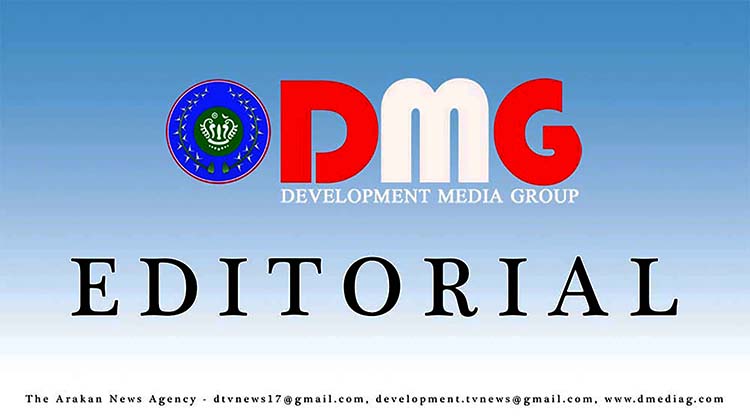- Extreme poverty drives Sittwe residents to dismantle abandoned houses for income
- Weekly Highlights from Arakan (Feb 23 to March 1, 2026)
- Over 300 political prisoners freed from 10 prisons nationwide
- DMG Editorial: Between War and Opportunity - A New Border Reality for Bangladesh and Arakan
- Arakan Army sets five-year prison term for kratom cultivation in controlled areas
Let’s move forward in unison
Associations, networks and foundations were formed today in the Arakanese community to work for the community. Some organizations remain successful but some failed to keep their agendas on an even keel.
15 Jun 2019

"Those who cannot remember the past are condemned to repeat it."
George Santayana
When there is a collapse or breakdown of societies or social structures, disunity and polarization among people in a society occurs. This is the case if you look at the history of Arakanese. Unity is essential for the past, the present and the future. When there is unity, success and progress will be achieved.
One of the noblest traits of Arakanese people is their patriotism, unfortunately there’s a lack of unity. Thus, organizations were fragmented and never reached their ultimate fruition. These situations can be seen so far as examples of the social fissures in the region.
The most prominent case is the merger between two Arakanese political parties that occurred at the request of Arakanese people. The Rakhine Nationalities Development Party (RNDP) and the Arakan League for Democracy (ALD) merged in 2014 under the name Arakan National Party (ANP). People could enjoy the result of this union to some extent.
People were happy for it but subsequently a deep division occurred among members of the party, now new separate political parties have been established.
Currently, a note of discord has crept into the Rakhine Women’s Union (RWU) headed by Daw Saw Mya Razar Lin, a well-known woman in Myanmar. Hearing about the disharmony within Arakanese organizations, Arakanese people from the region and abroad feel troubled.
Separation and disintegration of organizations and associations begins from a lack of unity among members of the organizations and associations. Attempts by members of these groups to elevate their status in a social or political group, is merely a means for gaining more power and authority among their peers or colleagues. This type of behavior only leads to a lack of cooperation between the leaders and members. Moreover, it leads to people advancing their own ideologies or policies while disregarding or downplaying other colleague’s ideas and input when it comes to decision making. In other words, people who lust for power in a civic minded organization can only see things in a subjective light and ignore more reasonable and objective perspectives colleagues may offer. This type of narcissistic conduct is the catalyst for creating fractures in a political or social body that should be in theory, amicable and cohesive.
If we closely examine Arakanese national political history, we can see that adopting sectarianism, lack of mutual understanding, respect and recognition, and harboring suspicions between leaders leads to internal struggles. Attempts to settle these discrepancies using impulsive decisions without trying to differentiate between friend or foe, insider or outsider, or determining the difference between principal and ordinary factors only exacerbates the situation. Disunity will prevail and pollical parties will end up becoming disenfranchised.
Associations, networks and foundations were formed today in the Arakanese community to work for the community. Some organizations remain successful but some failed to keep their agendas on an even keel.
The situation in Arakan State at the moment, since the demise of the Arakan kingdom looks very bleak indeed. Social institutions such as politics, economics, healthcare and education have hit rock bottom. So, we all need to try with great effort and selflessness to develop the region and preserve our solidarity so Arakan State can once again rise up like a phoenix from its ashes and regain the dignity and righteousness it so desperately desires and deserves.
The DMG urges everyone to step forward in complete harmony and participate in constructive activities via means of mutual cooperation and understanding. Also, people should remember and embrace the region’s rich history and recognize why it lost its’ sovereignty due to the lack of unity.








.jpg)











